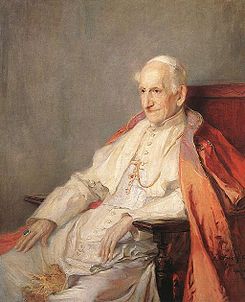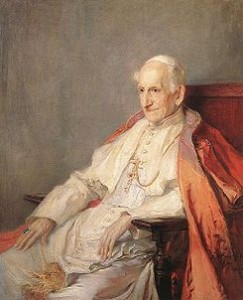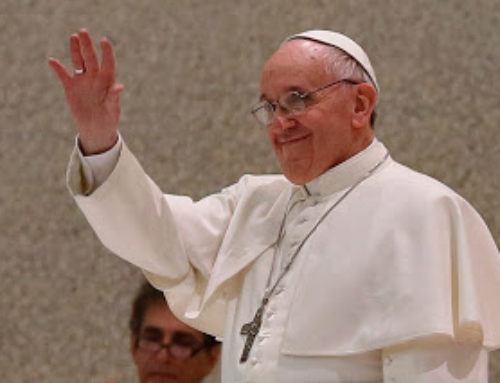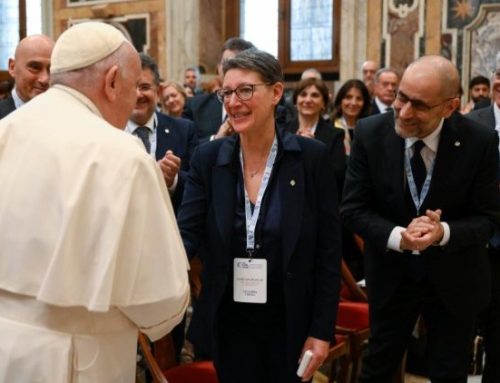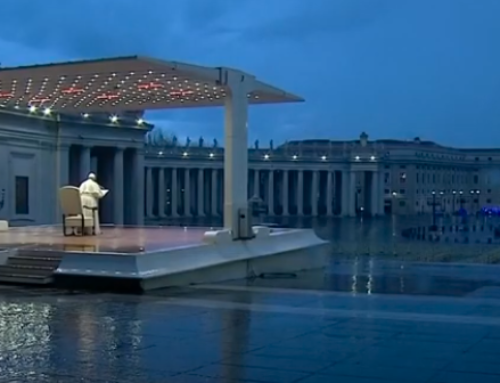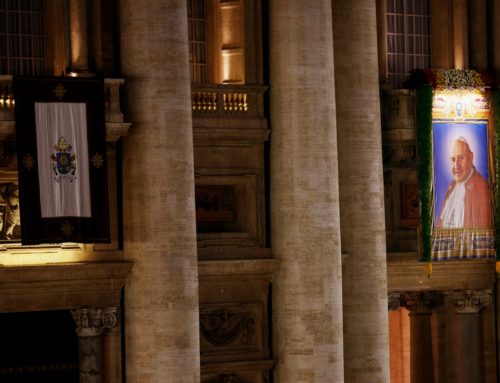Intermediary social bodies in Rerum Novarum
17-05-2016 – by Silvio Brachetta
Osservatorio Internazionale Cardinale Van Thuân
Israel has never been a people with a vocation to disorder. Genealogies are already present in Genesis, their purpose being to set orderly lines of progeny. Frequent are the genealogies in Sacred Scripture, both the Old and the New Testament. The ‘people’ were organized into twelve tribes, and narrated in the Book of Numbers is the census thereof ordered by God. In the desert, Moses was convinced by his father-in-law Jethro to choose “judges” so they would serve Israel as “leaders of thousands, hundreds, fifties and tens”[1]. Just like other peoples, the people of the Alliance looked nothing like a heterogeneous mass, but from the earliest times was grouped together in an orderly manner in times of both peace and war. As centuries passed, intermediary social bodies appeared between the individual and the sovereign, most of them according to proportions off fivefold, tenfold and one hundred fold.
On the mountain near the lake of Tiberias, Jesus is surrounded by a crowd of at least five thousand people. Before the miraculous multiplication of loaves of bread and fish, the Lord says to the disciples, “Have the people sit down in groups of fifty”[2]. St. Augustine argues that the number ‘five’ symbolizes those who are under the law, with the Pentateuch being the figure of this[3]. Moreover, Origin presents the “fifty” as the “number implying forgiveness in line with the mystery of jubilees, which were celebrated every fifty years”[4]. Therefore, there is a long standing link between the Israelite social order expressed by number and time, and salvation, which takes place in the law (justice), repentance and forgiveness (mercy).
Lastly, society is founded on the family, which is “the original cell of social life”[5], because “God created man in His image; in the divine image He created him; male and female He created them”[6].
Associations and organizations
The Social Doctrine of the Church began speaking about intermediary social bodies in the first social encyclical, theRerum Novarum di Leo XIII[7]. In this document the Holy Father wanted to reassert the importance of associations/organizations along the lines of the medieval guilds in order to restore peace to those relations between workers and capitalists ripped asunder by socialist driven class struggles in the XIX century. He projected the “workingmen’s guilds’ as much akin to “associations and organizations as afford opportune aid to those who are in distress, and which draw the two classes more closely together”[8]. Likewise included therein are other realities such as “societies of mutual help, benevolent associations established by private persons and charitable institutions”[9]. In particular, societies of mutual support “provide for the workman, and for his widow or his orphans, in case of sudden calamity, in sickness, and in the event of death”, while the charitable institutions are set up “for the welfare of boys and girls, young people, and those more advanced in years”[10].
A good description of what the medieval guilds (associations) were like may be found in a paper prepared by Vera Zamagni[11], who argues that they were not just organizations of artisanal producers, but originally “had a more general meaning”: “It was a matter of any elective organization (hence not driven by blood ties, clan bonds, or belonging to one master or another) in which people joined together to attain a common end”. Therefore, explains Ms Zamagni, universities, chambers of commerce, companies, and even confraternities and monasteries were associations (corporations). “Universities were associations of professors and students, who freely did research, taught and learned”. Chambers of commerce (merchants) “were organizations that set market rules and had them respected”. Likewise organizations were the companies “to engage in some particular form of economic activity”, and confraternities of “laypersons, who prepared religious festivities”. Even monasteries represented a ‘corporation’ when men “men gathered together [in the monastery] to pray to God and do good for their neighbor”. It is interesting to note that in these organizations there was no authority that could assume command by virtue of being invested with it from on high since they were horizontal associations”. Therefore, offices were filled by election on a basis of rotation”. Ms Zamagni remarks that “the instruments of modern democracy (runoff voting, for example) were invented in monasteries, which were the first ‘corporations’ created on the ruins of the Roman empire in chronological order”.
All this formed part of a corpus where expressed were the libertates – the liberties – of individuals. Therefore, if we are looking for the origin of living life grafted onto the liberality of God, we have to look for it above all in the Christian middle ages.
The social bodies and the kingship of Christ
As Leo XIII regretfully states in Rerun Novarum, the suppression of the ancient workingmen’s guilds in the 19th century “with no other protective organization to take its place” happened while “public institutions and laws set aside the ancient religion[…] and working men have been gradually surrendered, isolated and helpless, to the hardheartedness of employers and the greed of unchecked competition”[12]. Hence, the grave evils of usury, speculation and “the monopoly of production” whereby a small number of very rich men have been able to lay upon the teeming masses of the laboring poor a yoke better than that of slavery itself”[13]. In these words the Holy Pontiff seems to grasp the core of the 18th century “social question”. The solution he proposed was consistent with the history of salvation and the reality of creation. The so-called social parties are like the organs and members of the human body: completely distinct from one another, but in constant need of one another. Moreover, akin to the human body, the social body also needs “that harmonious temperament which is known as symmetry”[14].
Through nature, therefore, God disposes that “each needs the other: capital cannot do without labour, nor labour without capital” since, Pope Leo XIII continues, “mutual agreement results in the beauty of good order, while perpetual conflict necessarily produces confusion and savage barbarity”[15]. It is therefore evident that discourse such as this can only take place in Christian society, where God is at the center “in settling disputes and revealing their roots, because Christianity has a richness of marvelous force”[16].
Corporativism becomes a synonym of egoism
Christianly inspired associations rose again, but parallel to analogous endeavors which were purely external imitations. Between the end of the 19th century and the beginning of the 20th century, the rebirth of Catholic corporativism – in the form of the labor union and the league among workers – took place parallel to the rampage of social-communist “red” unionism centered entirely on the perennial conflict between employers and the proletariat. And this “red” unionism prevailed over the ‘‘white’ version (Catholic) until the advent of Fascism (and after its downfall), when so-called ‘black’ corporativism was imposed.
Communist or Fascist driven corporativism is far removed from the Catholic ideal due to readily evident internal contradictions, the solipsistic basis, and the atheistic thrust behind it. In particular, social-communism seeks to impose itself through class struggle – and hence hate – and tends in the direction of the forced collectivization of goods, as well as the abolition of private property, which is a constituent principle defended by the Social Doctrine of the Church.
In the opposite political camp, Mussolini imposed corporativism as the soul of Fascism, with the particular feature of a well harnessed system in a regime of total subjection to the totalitarian State. In both the ‘red’ and the ‘black’ versions, associations and organizations were ever the hostages of a grotesque circuit of vested interests extraneous to any passion for the common good. Egoism assumed pride of place over solidarity between parties, and free will did the same with respect to justice. During the XX century, gradually joining the forces of historical opposition to the Magisterium’s solution to the ‘social question’ were other errors that can be related to modernity and the anti-Christian option embraced by regimes and peoples: for example, liberalism, utilitarianism, anarchist radicalism, relativism and individualism.
Nowadays as well, and far removed from the societas cristiana, the praxis and the aim of social bodies are almost entirely unlike anything indicated by the Church and oscillate between never doused class hatred and exaggerated individualism.
Silvio Brachetta
[1] Ex 18: 21.
[2] Lk 9: 14.
[3] Cf. Sant’Agostino, Commento al Vangelo di Giovanni, Omelia XXIV, 6.
[4] Origene, Commento al Vangelo di Matteo, Libro XI, 3.
[5] Catechism of the Catholic Church, n. 2207.
[6] Gn 1: 27.
[7] Leo XIII, Encyclica Letter Rerum Novarum, 15 May 1891.
[8] Ibid., n. 48.
[9] Ibid.
[10] Ibid.
[11] Vera Zamagni, “Mutualità, corpi intermedi e protagonismo sociale”, intervento al Seminario dal titolo:Riforme istituzionali e sussidiarietà: strumenti per una cittadinanza attiva, Torino, 05/05/2012.
[12] Rerum Novarum, op. cit., n. 3.
[13] Ibid.
[14] Ibid., n. 19.
[15] Ibid.
[16] Ibid.

